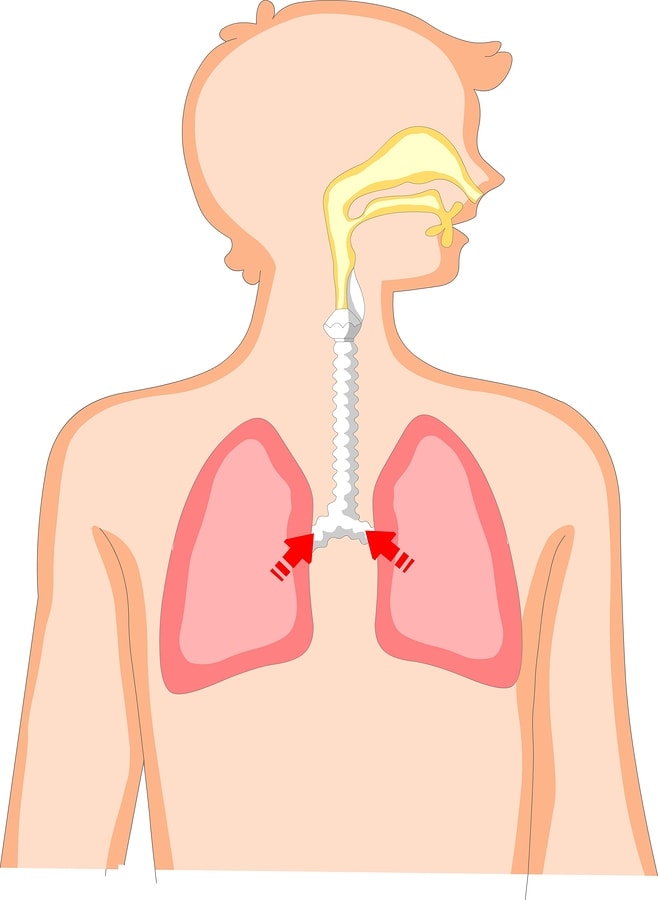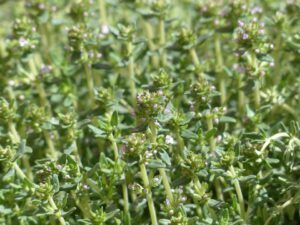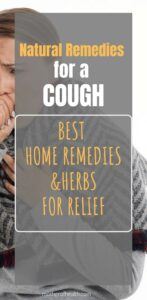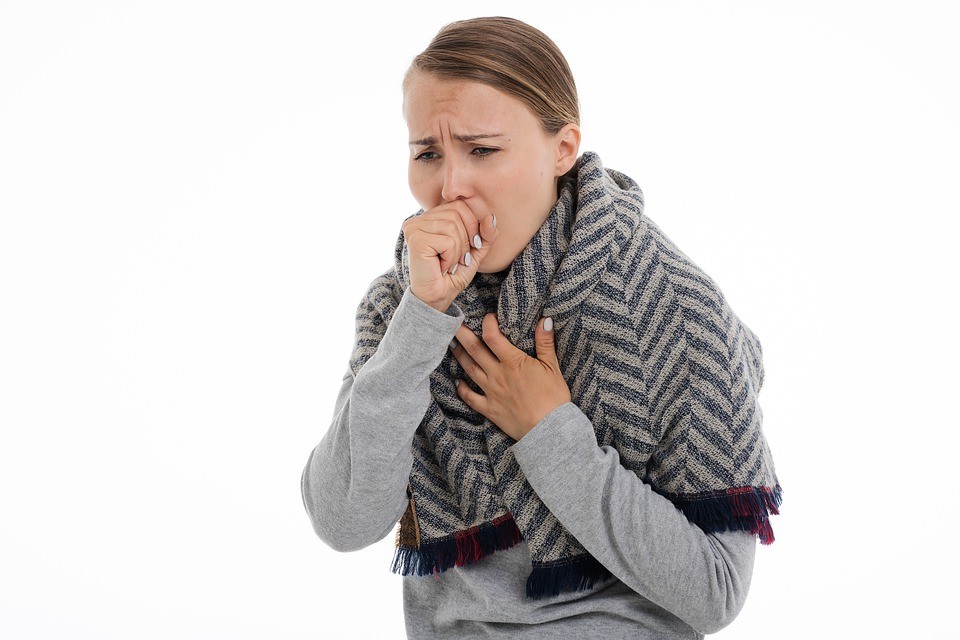What are the best home remedies for cough ?
What natural remedies are best to cure my cough at home?
How can I cure my strong cough naturally overnight?
Whatever the cause of your cough, it can be pretty irritating and uncomfortable. Here we will explore some possible causes and natural remedies for a cough.
Is Your Cough from Allergies or a Cold?
Sometimes a cough develops when you have a cold or flu. But you can also get a cough from allergies, too. Maybe you have had a lingering cough for some time, with cold symptoms that never seem to clear up. It could be that you don’t have a cold after all, and what you have instead are allergies.
A cold is usually caused by a virus. Allergies are caused by your immune system reacting to certain substances such as pollen or cut grass, medications, and others. Both conditions, though, cause similar symptoms like a runny nose and stuffiness.
The key is to know which is which so you can get the right treatment, and naturally, get better faster.
If you have allergies:
- The mucus in your nose is usually clear or watery constantly, and it won’t become thick or yellow, which are usually signs of a cold or the flu.
- Usually, your eyes become watery and itchy – something not very common with a cold.
- Your symptoms usually stay the same from day to day when you have an allergy. They don’t get worse or better, unlike a cold caused by a virus or bacteria.
- You get the symptoms consistently in certain situations, like when it’s the spring or fall, or when you come into contact with cat hair, for instance.
It makes no difference whether you have a cough from an allergy or a cold. Both can be pretty annoying. Sometimes when you cough, or when you have a coughing spasm, people move away, looking at you as if you are starting a plague and spreading the germs around.

What Causes You to Cough?
Well, the purpose of coughing is to help us. That’s what Ayurveda says.
Coughing is the body’s way of trying to get rid of something that it sees as a threat to the airways. These “threats” can be a whole bunch of different things.
When our airways dry out, the immune-activating small cilia in the airways become dry. Dryness irritates the mucous membranes, which signals them to make more mucus, and then the nose begins to run, and you experience sniffles and then a cough.
Understanding the Mechanics of Coughing: How the Body Responds to Irritants
Or you could be coughing because you have food stuck in your throat. It could be pollen from a new season or air pollution. It could be from a postnasal drip at the back of your throat. All these things irritate the sensory fibers in the airways, and they stimulate a cough.
What happens is your vocal cords close briefly, so pressure generates in the lungs. Once enough pressure has built up, the vocal cords open and the air flows quickly through your voice box. That creates the coughing sound. That’s the miracle of our bodies! – It’s the natural response of the body to expel “threats”!
When you have an allergy, you will usually have a dry cough. You won't have a rattling cough that comes from the chest like when you have the flu.
If you have an allergy or sensitivity to something, your eyes will react, too, as well as your nose. Your eyes will become watery, red, and itchy, and your nose will start to run.
Timing counts as well. When it comes to allergies, if you are allergic to pollen, for instance, or maybe your friend has introduced you to her cutest pet kitten, you are no doubt going to notice symptoms almost immediately or at least within an hour or so of being exposed.
These symptoms can last for a few hours after and even long after, when you are not even exposed to an allergen, or the cause of the allergy, anymore.
Coughs that come from allergies are usually dependent on patterns, as well. Medical doctors try and look at the bigger picture. For instance, you might get a cough every March, for example. That would be a good sign that you are suffering from allergies and not the common cold.
How do You Know If Your Cough is Related to a Cold?
Generally, allergy coughs are a dry kind of cough, whereas coughs from colds or flu tend to be wetter. Cold coughs are usually wet as it is more likely to be due to mucus that your body is trying to rid itself of.
Coughs accompanied by a cold usually come with a stuffy nose and maybe even postnasal drip, which is the mucus running down the back of your throat. That can cause you to have a sore throat, cough, and even chest discomfort. If you have a low-grade fever, it is a good sign that you probably have a cold or flu and not an allergy.
Colds don’t start as rapidly as allergies do. They tend to develop over a few days.
Dry coughs don’t always indicate an allergy, and a wet cough doesn’t always indicate the flu or a cold. Allergies can also plague your nose and cause that nasty post-nasal drip, which can cause a wet, irritating cough.
Is a Cough Something To Worry About?
Something to bear in mind is that a cough, no matter the cause, should not be something you live with regularly. A cough will usually run its course over a couple of weeks.
If you have a cold or flu, it should last around three weeks or so, even though (perish the thought!) it can linger on for around 8 weeks – that’s according to the US National Library of Medicine. The length for an allergy-related cough will vary and this will depend on how you are treating it.
Don’t Ignore a Cough – It Could Be More Serious Than You Think
Say two months pass and you are still coughing and spluttering – then maybe it’s time to see your doctor. You may want to have an allergy test to determine if you have an allergy you are not aware of. You could also potentially be suffering from other health issues such as asthma. Do you have shortness of breath? Maybe you have reflux, you could be getting pneumonia or bronchitis.
When you feel your life is being disrupted by your coughing, you shouldn’t just ignore it, you need to get it checked out. It is best to have a doctor examine you and give you peace of mind about your condition.
Recognizing Warning Signs: When to Consult a Doctor
Unfortunately, another reason for a cough that just lingers can be a sign of cancer–particularly lung cancer. That is why it is so important to get a lingering or chronic cough checked out. Because then your doctor, if he suspects anything, can order an X-ray and perhaps other tests to rule out more serious issues.
Sometimes the airways can become constricted, inflamed and blocked. The lungs could produce a whistling or wheezing sound as you breathe. This wheezing can be associated with a few causes which can be treated. But wheezing can also be a symptom of lung cancer which once again, is why you should not ignore a chronic cough and have it checked out. You should not assume that wheezing is caused by allergies or asthma. You need to have your doctor confirm the cause.
Hoarseness–when your voice sounds deeper or is raspier, can also point to something more serious. When it persists for more than a couple of weeks is time to get checked out by a doctor. Hoarseness related to lung cancer can occur when a tumor that you might have, affects the nerve which controls the voice box.

Natural Remedies For a Cough
Whether your cough is from allergies, a cold or from the flu, there are many benefits to treating it naturally.
Caution – It is best not to mix natural medications with conventional medications from your doctor. This can result in unwanted side effects. Let’s take a look at some natural remedies for a cough:
1. Honey tea
All you do is drizzle some honey into your tea with a slice of lemon. Honey is a superfood known for relieving coughs. Drink this tea mixture once or twice a day. Don’t give kids under 1-year old honey unless your medical doctor or pediatrician says it is ok.
2. Fluids
Drinking fluids goes without saying because staying hydrated is key if you a have cough and colds. Research shows that when you drink liquids at room temperature, you can ease a cough, runny nose, and sneezing.
If you have a severe cold or flu you may want to warm up your fluids. Studies show that hot beverages ease even more symptoms like sore throat, fatigue and chills.
3. Steam
Steam does wonders for a wet cough. That’s why sometimes it is recommended to have a humidifier in your room when you have flu or suffer from bad coughs. This even comes recommended by the National Heart, Lung, and Blood Institute (NHLBI).
Allow your bathroom to fill with steam and stay there for a few minutes, inhaling. Drink a glass of water afterward to keep yourself hydrated and cooled down. Some people will make a steam bowl of hot water.
You can add herbs, essential oils such as eucalyptus or rosemary known to be good decongestants. Place a towel over your head to trap the steam, and inhale its vapors for about 5 minutes to decongest a stuffy respiratory system. If the steam feels hot on the skin, stop until the skin cools down.
4. Salt-water Gargle
This is a very simple remedy but highly effective. Gargling with salt water is known to reduce the phlegm and mucus at the back of your throat and that in turn, lessens the need to cough.
Add half a teaspoon of salt to a cup of warm water until it dissolves. Then allow this solution to cool slightly before gargling. Take a gulp and hold your head back allowing the gargle mixture to sit at the back of your throat for a few moments. Then spit it out. Do this gargling with salt water several times each day until the cough improves. Don’t let little kids do this as they might not be able to do it properly.
5. Probiotics
Probiotics might not directly relieve a cough, but they boost your immune system because they balance the bacteria in the gut. And according to Ayurveda, 85% of health and well-being is determined by digestive health.
6. Garlic Tincture
A tincture of garlic will help you fight infection. Take several cloves of garlic and soak them in brandy and leave for 2 – 3 weeks, then strain.
7. Onion Poltice
Apply a warm roasted onion to the chest, or drink a warm onion broth to cleanse and reduce congestion.
8. Ginseng tea
Ginseng in hot herbal tea warms your body and eases symptoms
9. Eucalpytus Essential oil
Inhale the steam from a few drops of eucalyptus oil in boiling water, as it is expertorant and a decongestant.
10. Pine Essential Oil
Pine oil in a vaporizer will ease coughing and act to restore the lungs.
Best Herbal Remedies to Soothe a Cough
Wild Cherry Bark
In her book Modern Herbal, Maud Grieve recommends Wild Cherry Bark to dry up mucous membranes. Known as an astringent herb, Wild Cherry Bark relaxes airways, so bronchioles are less likely to trigger a cough.
Osha Root
Native Americans used Osha Root for all sorts of respiratory conditions. Its active ingredient, camphor, helps to open airways and support the respiratory process.
Thyme
Thyme has been used for thousands of years as a remedy for coughs, sore throats, digestive issues, and bronchitis. In a study, thyme was given to participants along with a placebo. During the study, coughing fits were reduced by up to 68%
Licorice Root
A classic anti-inflammatory Ayurvedic herb, Licorice, is used as a lubricant to soothe your sinuses and airways. Lubrication suppresses the production of reactive mucus.
Grindelia Herb
Grindelia robusta or gumweed naturally opens the airways and supports respiratory health. It was used as a traditional medicine for California's Native Chumash Indians.
Slippery Elm Bark
Slippery Elm is one of the most effective herbs for the respiratory system because it is very viscous. This gelatinous quality allows it to adhere to mucous membranes to support the sinuses, throat, and bronchioles. Many Ayurvedic formulas for respiratory care are made with Slippery Elm.
Peppermint Leaf
The menthol in peppermint has an antiseptic effect on the entire body. Peppermint can open airways, reduce mucus, disperse fever, headaches, and coughs.
White Pine Bark
White Pine Bark supports healthy, deep breathing because of it's calming properties that relax your air passages.
Yerba Santa Leaf
Yerba Santa Leaf helps respiratory symptoms, including cough, cold, asthma, and inflammation.
Ginger Root
In Ayurveda, ginger is known as the “Universal Spice” because it has so many health benefits. It can thin excess mucus and boost your immune system.
Horehound
You can find Horehound in almost every herbal formula to treat respiratory symptoms. It is naturally rich in menthols to open your airways for a healthy respiration
Menthol Crystals
You can find Menthol Crystals in many plants like horehound and peppermint. It helps you breathe deeper by decreasing mucus production.
Don't forget to follow us on Pinterest. Thank you for your time and reading.
The information presented here is in no way meant to serve as medical advice. It is merely information and opinion. All information, content, and material of this website is for informational purposes only and are not intended to serve as a substitute for the consultation, diagnosis, and/or medical treatment of a qualified physician or health care provider. If you are experiencing symptoms of any kind, please consult with your physician.
Related Content



